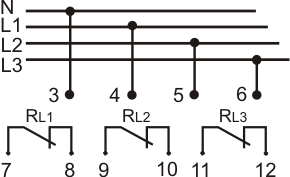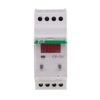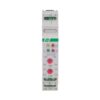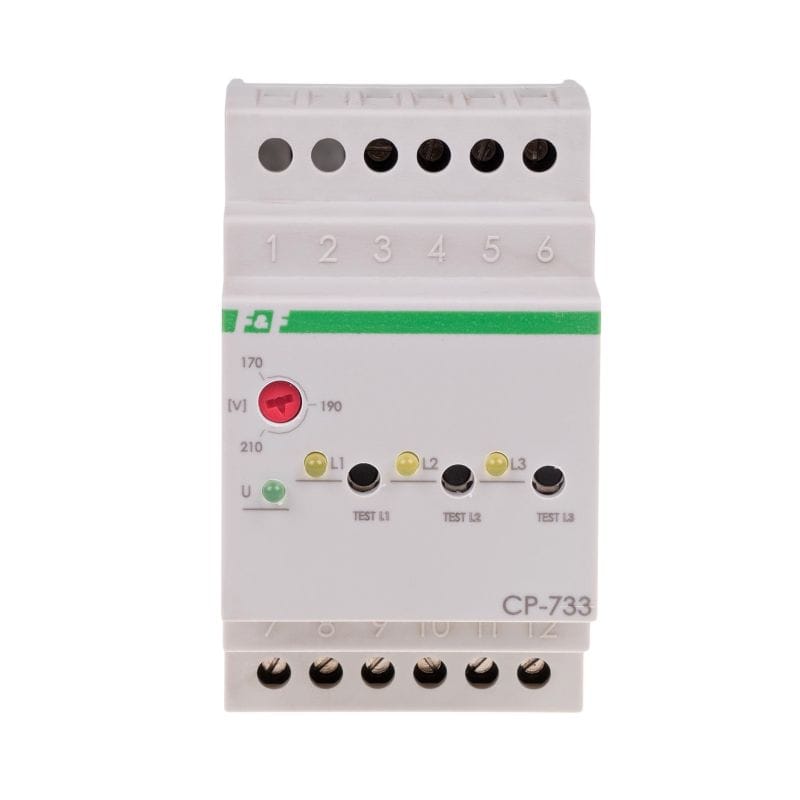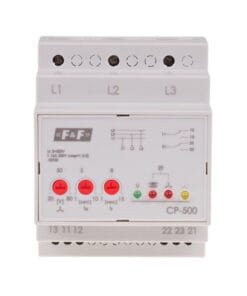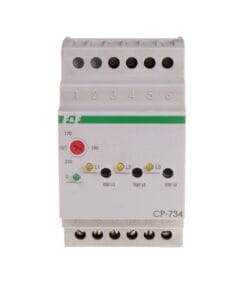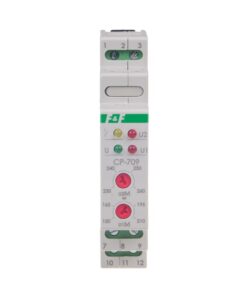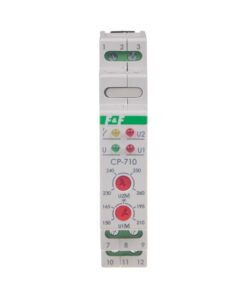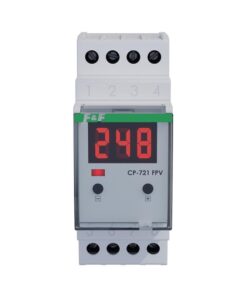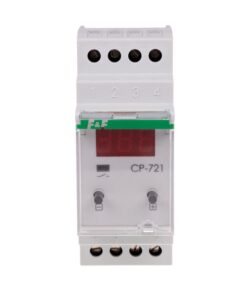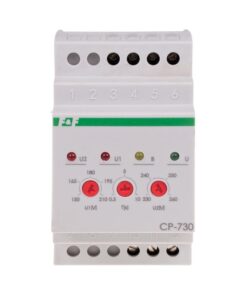Functioning
A voltage relay is used to control voltage in a 3-phase network and secure a receiver against voltage drops below a preset value.
The relay’s power supply is signalled by a green U LED. Proper values of network voltage are indicated by yellow LEDs labelled as L1, L2 and L3 in each phase circuit (relay contacts shorted). Voltage decay in a phase or its drop below a preset activation threshold results in the shortage of the relay contact for this phase (a yellow LED for this circuit will switch off). The contact will be automatically released after the voltage in the phase is reinstated or its increase is 5V over the preset threshold (i.e. the voltage hysteresis value).
Pressing an impulse switch labelled TEST in the circuit of a given phase activates the contact for this phase for the time the switch remains pressed.
Voltage relays CP-733
Under voltage. Contacts 3×1N/C.
Voltage relays serves to voltage control in three phase mains and to protect receiver against the effects of voltage collapse or increase beyond set values.
Reference CP-733
- Type
- three-phase
- Power supply voltage
- 3×(50÷450 V)+N
- Time lock
- NO
- Cooperation with power generators
- YES
- The executive element
- 3 × relay
- Maximum load current
- 3 × 8 A
- Contact configuration
- 3 x NO *
- Separation of the contact
- YES
- Power control
- 4 × LED
- Operating voltage - adjustable
- 170÷210 V
- Return voltage hysteresis
- 5 V
- Time of return
- 1,5 s
- Operating time
- 0,5 s
- Terminal
- pluggable terminal blocks 4,0 mm²
- Tightening torque
- 0,5 Nm
- Power consumption
- 0,8 W
- Working temperature
- -25 ÷ 50 °C
- Dimensions
- 3 modules (52,5 mm)
- Assembly
- on rail 35 mm
- Ingress Protection Marking
- IP20
